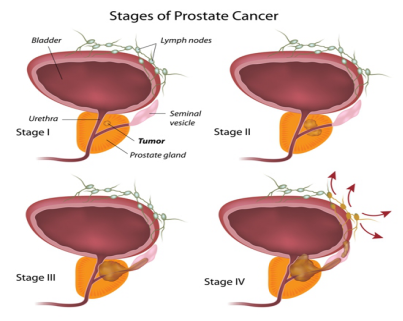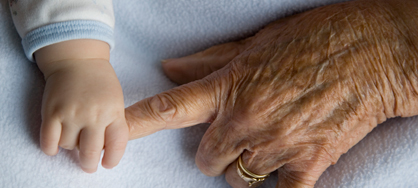
Napping for more than an hour during the day could be a warning sign for type-2 diabetes, Japanese researchers suggest.
They found the link after analyzing observational studies involving more than 300,000 people.
UK experts said people with long-term illnesses and undiagnosed diabetes often felt tired during the day.
But they said there was no evidence that napping caused or increased the risk of diabetes.
The large study, carried out by scientists at the University of Tokyo, is being presented at a meeting of the European Association for the Study of Diabetes in Munich.
Their research found there was a link between long daytime naps of more than 60 minutes and a 45% increased risk of type-2 diabetes, compared with no daytime napping - but there was no link with naps of less than 40 minutes.
Sleeping patterns
The researchers said long naps could be a result of disturbed sleep at night, potentially caused by sleep apnoea.
And this sleeping disorder could increase the risk of heart attacks, stroke, cardiovascular problems and other metabolic disorders, including type-2 diabetes.
Sleep deprivation, caused by work or social life patterns, could also lead to increased appetite, which could increase the risk of type-2 diabetes.
But it was also possible that people who were less healthy or in the early stages of diabetes were more likely to nap for longer during the day.
Shorter naps, in contrast, were more likely to increase alertness and motor skills, the authors said.
'Early warning sign'
Naveed Sattar, professor of metabolic medicine at the University of Glasgow, said there was now a lot of evidence of some kind of link between sleep disturbances and diabetes.
"It's likely that risk factors which lead to diabetes also cause napping. This could include slightly high sugar levels, meaning napping may be an early warning sign of diabetes," he said.
But proper trials were needed to determine whether sleeping patterns made a difference to "real health outcomes".
Dr Benjamin Cairns, from the cancer epidemiology unit at the University of Oxford, said the findings should be treated with caution.
"In general, it is not possible to make conclusions about cause and effect based on observational studies alone, because usually they cannot rule out alternative explanations for their findings," he said.
Prostate cancer treatment 'not always needed'

Just keeping an eye on prostate cancer results in the same 10-year survival rate as treating it, a study suggests.
The UK researchers warned too many men were having procedures that damaged their sex life and caused incontinence.
A trial of 1,643 men with small prostate cancers resulted in the same 99% survival rate after a decade for those who had had surgery, radiotherapy or simply monitored the tumour.
Experts said the results were "extremely reassuring" for men.
"It's a global problem that patients are over-treated," Prof Freddie Hamdy from the University of Oxford, told the BBC.
"It's understandable, if a 55-year-old man is told they have cancer, and they have a family, they don't want to take any risks."
Price to surveillance
In the trial, men whose prostate cancer had been detected by testing for a chemical - prostate-specific antigen (PSA) - in the blood were either monitored, had surgery to remove the prostate or radiotherapy to kill the tumour.
The study, backed by the research wing of the NHS - the National Institute for Health Research - then followed the men for 10 years.
The survival rates were the same, but there was a higher risk of side-effects with treatment.
There was double the risk of incontinence and problems with sex in those having surgery. Radiotherapy increased the risk of bowel problems.
But there was a price to the surveillance option - the prostate cancer progressed in one in five cases.
These men could be treated, but it may affect their long-term survival beyond the 10-year study.
Prof Jenny Donovan, from the University of Bristol, said: "This is the first time radiotherapy, surgery and active monitoring treatments for prostate cancer have been compared directly.
"Each treatment has different impacts and effects, and we need longer follow up to see how those balance out over the next 10 years."
'Anxiety'
The findings, in the New England Journal of Medicine, apply only to early stage tumours - those found at a more advanced stage should be treated aggressively.
Dr Matthew Hobbs, from the charity Prostate Cancer UK, said: "At the moment, many men decide against active surveillance because of the uncertainty about the impact of that choice and the anxiety it causes.
"It is extremely reassuring to hear that, when it is performed to a high standard, active surveillance gives men the same chance of survival."
'Super agers' offer clue to keeping a sharp memory

Memory loss is not an inevitable part of ageing, say US scientists who are studying a unique group of adults in their 60s and 70s with minds as sharp as people in their 20s.
These "super agers" performed just as well on memory tests as "youngsters" a third of their age, researchers at Massachusetts General Hospital found.
Brain scans appeared to reveal why.
Regions involved with learning and retaining new information showed no sign of typical age-related shrinkage.
What's more, memory test scores correlated with brain size - those who performed best in the tests also had greater thickness in the key brain regions the researchers measured on MRI scans.
The study authors say their work, outlined in the Journal of Neuroscience, could ultimately help with understanding the processes that lead to dementia and if there are ways to avoid them.
Cognitive skills
As we age beyond our 50s, our brains tend to shrink in volume. Memory also begins to decline.
These widespread brain changes are considered entirely normal, but mounting evidence suggests they may not be universal.
Certainly in Alzheimer's disease, for example, there is notable shrinkage in parts of the brain involved with storing and retrieving memories.

The Massachusetts team focused their study on these parts of the brain, scanning and testing the cognitive skills of 40 older people (in their 60s and 70s) and 41 young people (aged 18 to 32).
The tests revealed that some of the older people had memory skills that rivalled those of the younger volunteers.
In these 17 "super agers", several parts of the brain's memory machinery - including the anterior insula and orbitofrontal cortex and the hippocampus - appeared thicker and healthier than normal for people of their age.
Lead researcher Dr Brad Dickenson said his findings built on those of colleagues from Northwestern University in Illinois, who coined the term super agers.
"They were looking at people in their 80s and comparing them with middle-aged people. We wanted to shift it slightly younger, to around the age of retirement. This is when you normally start to see some brain shrinkage."
Resilience
He says the million-dollar question now is: "Can you make a person a super ager or are you born with it, and does it really make a difference in real life?
"We hope that there might be not just genetic factors that make people resilient but also things that people can do themselves, such as physical fitness and diet."
He said experts already know that certain factors, such as smoking and high cholesterol, age the brain faster.
Dr Rosa Sancho from Alzheimer's Research UK said: "Although it's not surprising that the brain areas preserved in super agers included those involved in memory, it's interesting that these are also areas known to be vulnerable to damage in diseases like Alzheimer's.
"The super ageing phenomenon is intriguing - do super agers exhibit enhanced memory as younger individuals or does it indicate resilience against the ageing process? Understanding why some people appear to enjoy better cognitive ageing than others could provide important clues about how to prevent age-related memory problems and provide insight into potential ways to reduce the risk of dementia."



